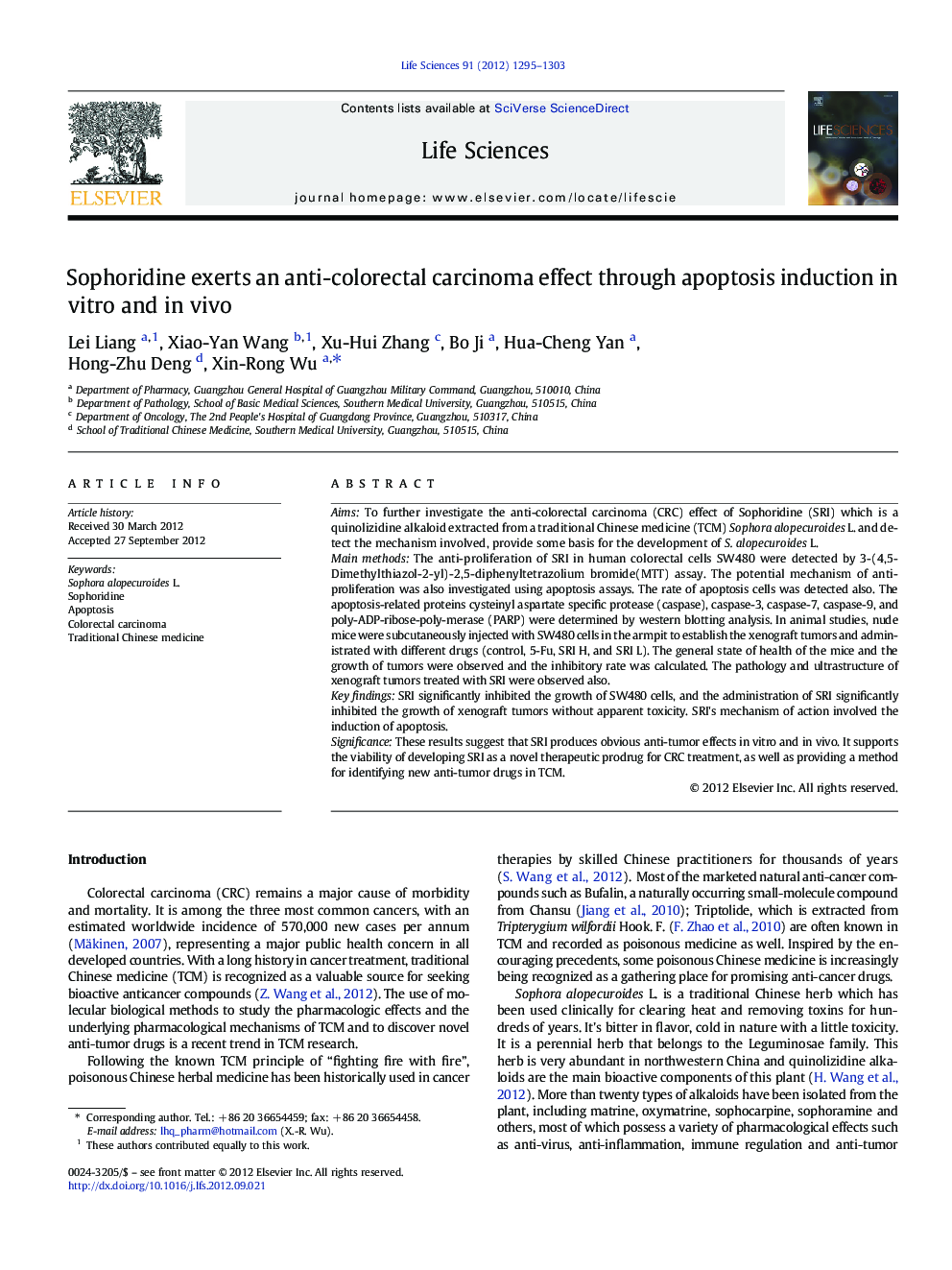| Article ID | Journal | Published Year | Pages | File Type |
|---|---|---|---|---|
| 5842363 | Life Sciences | 2012 | 9 Pages |
AimsTo further investigate the anti-colorectal carcinoma (CRC) effect of Sophoridine (SRI) which is a quinolizidine alkaloid extracted from a traditional Chinese medicine (TCM) Sophora alopecuroides L. and detect the mechanism involved, provide some basis for the development of S. alopecuroides L.Main methodsThe anti-proliferation of SRI in human colorectal cells SW480 were detected by 3-(4,5-Dimethylthiazol-2-yl)-2,5-diphenyltetrazolium bromide(MTT) assay. The potential mechanism of anti-proliferation was also investigated using apoptosis assays. The rate of apoptosis cells was detected also. The apoptosis-related proteins cysteinyl aspartate specific protease (caspase), caspase-3, caspase-7, caspase-9, and poly-ADP-ribose-poly-merase (PARP) were determined by western blotting analysis. In animal studies, nude mice were subcutaneously injected with SW480 cells in the armpit to establish the xenograft tumors and administrated with different drugs (control, 5-Fu, SRI H, and SRI L). The general state of health of the mice and the growth of tumors were observed and the inhibitory rate was calculated. The pathology and ultrastructure of xenograft tumors treated with SRI were observed also.Key findingsSRI significantly inhibited the growth of SW480 cells, and the administration of SRI significantly inhibited the growth of xenograft tumors without apparent toxicity. SRI's mechanism of action involved the induction of apoptosis.SignificanceThese results suggest that SRI produces obvious anti-tumor effects in vitro and in vivo. It supports the viability of developing SRI as a novel therapeutic prodrug for CRC treatment, as well as providing a method for identifying new anti-tumor drugs in TCM.
